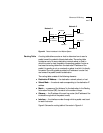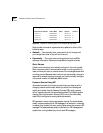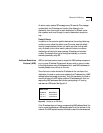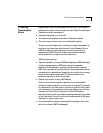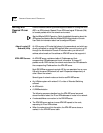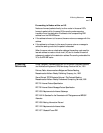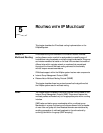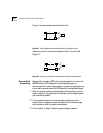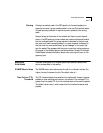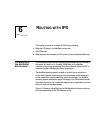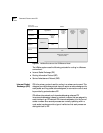
5
ROUTING WITH IP MULTICAST
This chapter describes the IP multicast routing implementation on the
LANplex® system.
About IP
Multicast Routing
IP multicast routing is an extension of the Internet Protocol. Multicast
routing allows a router or switch to send packets to a specific group of
hosts without using broadcasts or multiple unicast transmissions. This group
can include members that reside on the local LAN, members that reside on
different sites within a private network, or members that are scattered
throughout the Internet. Mulitcast routing achieves this functionality
without loops or excess transmissions.
IP Multicast support within the LANplex system has two main components:
■ Internet Group Management Protocol (IGMP)
■ Distance Vector Multicast Routing Protocol (DVMRP)
This chapter describes these two protocols as well as the algorithms that
the LANplex system uses for multicast routing.
IGMP The LANplex system is capable of dynamic multicast filtering based on the
Internet Group Management Protocol (IGMP). This protocol ensures that
multicast packets are flooded only to the appropriate ports within a routing
interface.
IGMP tracks end-station group membership within a multicast group.
Membership in a group is dynamic, and hosts are allowed to be a member
of more than one group at a time. Broadcast domains are maintained by
avoiding propagation of multicast broadcasts to the entire subnet by
confining them within the group (IGMP “snooping”).



